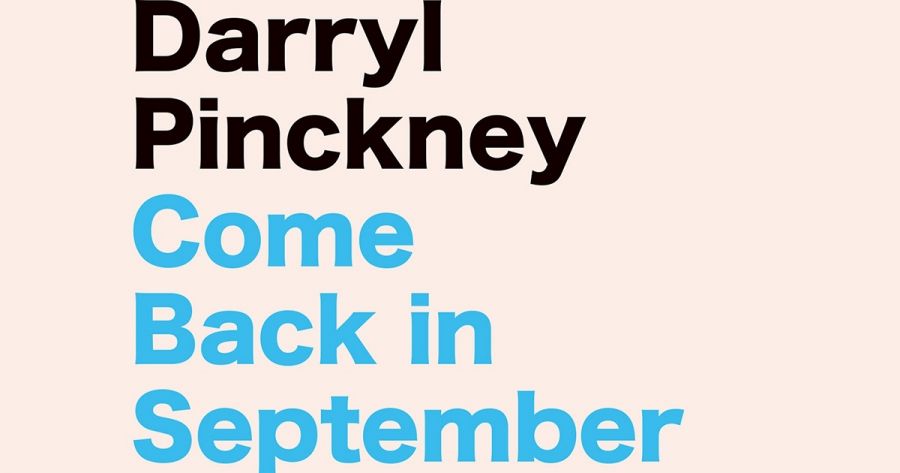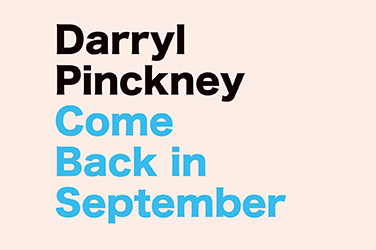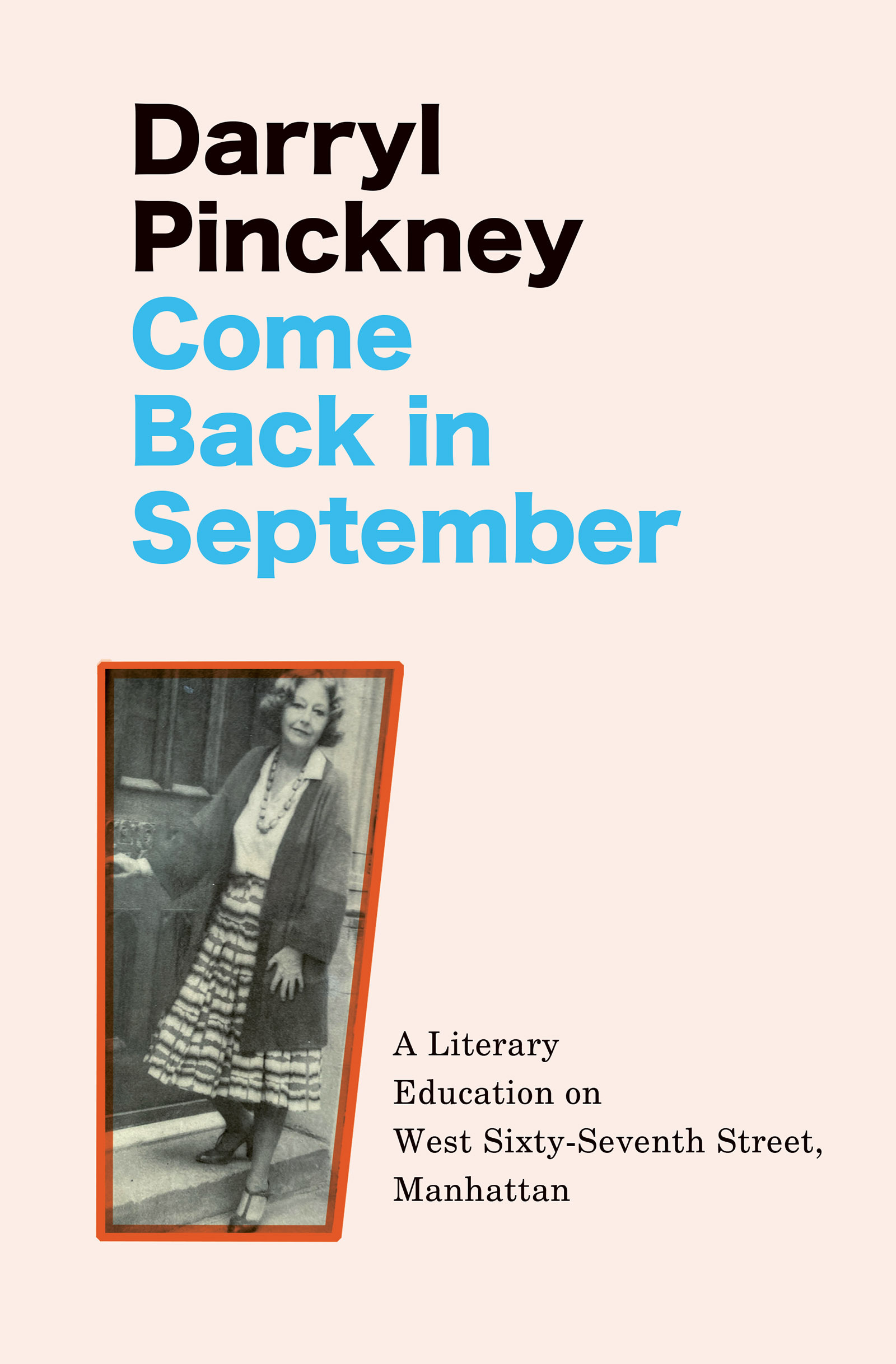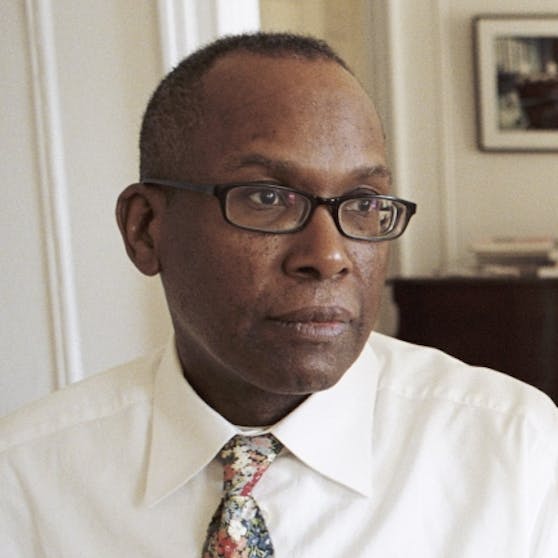
- Free Article: No
- Contents Category: Memoir
- Review Article: Yes
- Article Title: Pinckney in Manhattan
- Article Subtitle: On the couch with Elizabeth Hardwick
- Online Only: No
- Custom Highlight Text:
first went to New York City in January 1975. It was wonderfully dilapidated. There was a blizzard of sorts, but I had the light jacket I had bought in Athens. If it was cold, I didn’t notice. The morning I arrived, there was a particularly gory pack murder on the subway. I read about it in the Times. So I avoided the subway and walked everywhere, through the sludge. We all knew what happened if you strayed into Central Park. Folks in Columbus, Ohio, where I had been staying with friends, had implored me not to visit New York. They couldn’t imagine why a nice young boy from somewhere called Melbourne – anarchically long hair and freakish wardrobe notwithstanding – wanted to visit that sinful city. (Still missing Nixon, they spoke of sin and sodomy.) I stayed in Midtown, in a grungy hotel soon to be demolished. The old black-and-white TV was on a constant loop, but I followed The Dick Cavett Show as best I could. The louvred door to my room cast terrifying shadows over my bed whenever anyone passed my room. Each night I dreamt that an ogre was on his way from Wall Street to stab me to death. In the morning I had breakfast for 99 cents – or, if I was hungry, $1.99. Then I didn’t eat for the rest of the day. I haunted the grand old bookshops that lined Fifth Avenue in those days. I visited the Metropolitan Museum for the warmth, but I didn’t know about the Frick. Velvet Underground wasn’t playing at the Metropolitan Opera, so I skipped that. During my stay in New York I didn’t speak to a soul, which suited me fine. It was the purpose of my visit.
- Featured Image (400px * 250px):

- Alt Tag (Featured Image): Peter Rose reviews 'Come Back in September: A literary education on West Sixty-Seventh Street, Manhattan' by Darryl Pinckney
- Book 1 Title: Come Back in September
- Book 1 Subtitle: A literary education on West Sixty-Seventh Street, Manhattan
- Book 1 Biblio: riverrun, $69.99 hb, 419 pp
- Book 1 Cover Small (400 x 600):

- Book 1 Cover (800 x 1200):

Pinckney, a willing pupil, had much to learn. Shocked by what he had not read (he had no idea Melville wrote poetry), Hardwick plied him with books. ‘School and refuge was West Sixty-Seventh Street,’ Pinckney recalls. Nothing if not candid and sometimes tactless herself, Hardwick told him that he was the worst poet she had ever read and that on no account should he write more poems.
Hardwick, then approaching sixty, expected Pinckney to know more than he did. ‘She didn’t let you say just anything, even if you were tipsy.’ He stored up all her aphorisms. There were only two reasons to write – ‘desperation or revenge’. Some of the advice is sage, motherly: ‘Never talk about someone you know very well to someone you know less well.’
Like many New Yorkers, Pinckney is conscious of status, titles. Robert Silvers (co-founder of The New York Review of Books, principal publisher of Hardwick’s essays) has many names – ‘Bob’, ‘Robert’, ‘Mr Silvers’ – but Barbara Epstein (the other founder) is always ‘Barbara’, formidably so. Young Pinckney is intimidated by her; she may have doubted his motives or disapproved of his friendship with Hardwick, who is mainly ‘Elizabeth’, sometimes ‘Mrs Lowell’, seldom ‘Lizzie’. When he remarks how well she looks, Epstein says: ‘I just have Jewish hair.’ It takes years before she relents, but then her affection for him – and reliance on him – are as deep as Hardwick’s.
Pinckney seems at times very young. On the eleventh anniversary of Plath’s death, he hosts a Suicide Party. The narrative throughout is low-key, note-like, confidential but desultory (‘Is this when we talked about Berryman and Mr. Bones?’). Part 6 opens in medias res: ‘She asked me to get her a copy of Lolita.’ Apropos of nothing, we are told that Maria Callas died the day of Robert Lowell’s funeral. It is interesting for a while, then it is not.
The style is idiosyncratic, the syntax sly and venturesome. There are no quote marks, just dashes – a concession or confession of sorts. Pinckney would have drawn on the early journals (those precious tête-à-têtes), but they were burnt in one of several apartment fires he seems to have haphazardly caused.
It is a distinctly New York kind of book. Pinckney admits to being seduced by the city at an early age. When he passes the Dakota, he must remind us that it was the setting for Rosemary’s Baby. When the Lowells take Pinckney to a Fassbinder film they bump into the Alfred Kazins in the lobby. ‘We walked slowly.’ (Hemingway must have crashed the party.) His first funeral is that of James Baldwin, where he finds Epstein in conversation with Claire Bloom and Philip Roth.
Everyone seems permanently hungover. It is always cocktail time – ‘the moment for which all of New York lies, exercises, hurries, dresses’, as Hardwick wrote in Sleepless Nights. Later, Pinckney alludes to his own alcoholism, his secret drug life (NYRB paid for his rehab). From a recent essay of his, we know that he no longer drinks or walks on the wild side. He lives in England with his long-time partner, the poet James Fenton, who chips in now and then with editorial advice and references to the Homintern (‘The Love That Won’t Shut Up’, as Epstein dubs it). Everyone in this book has a Wikipedia entry.
(Reference to the toll of AIDS casualties is frequent but always succinct, parenthesised, too grave for biography.)
When Pinckney meets Hardwick, she is on her own again, Robert Lowell having left her for Caroline Blackwood, a Guinness heiress and former wife of Lucian Freud. Lowell had just published, with a kind of manic audacity, The Dolphin (1973), a sonnet sequence based on the letters Hardwick wrote him during this wrenching split. Hardwick, though incredulous, seems to have been unusually forgiving. She even tolerated the mercurial Blackwood, whom Lowell described as his ‘Aphrodite and ruin’.
The stuff on Lowell – the early years, the separation, the rapprochement of sorts – is fascinating. Gradually, chastened, Lowell returns to Hardwick, even moves in with her. Pinckney observes them closely, socialises with them. Hardwick is clear-eyed, inured to the poet’s tempests. When Harriet, a great friend of Pinckney’s, defends her father, her mother (like a wayward parent in What Maisie Knew) says: ‘Well, not mad, honey. I didn’t mean he was … Yes I did. Papa’s mad.’
Then Lowell dies of course, just sixty – a heart attack in a cab on his way back to Hardwick. He is clutching Freud’s portrait of Blackwood, so tightly that hospital staff have to sever his fingers to release the painting.
On his death in 1977, Lowell was the commanding figure in American poetry. Only Elizabeth Bishop came close. Interestingly, Hardwick’s profile soars now as her husband’s recedes. (Cathy Curtis published a major biography in 2021 – A Splendid Intelligence.) Michael Hofmann (Lowell’s most eloquent devotee) remarked on this in his review of The Uncollected Essays of Elizabeth Hardwick (ABR, September 2022). Still, Lowell – hardly read, perhaps untaught – continues to fascinate in light of Saskia Hamilton’s edition of The Dolphin Letters: Elizabeth Hardwick, Robert Lowell, and their circle (2019), which records his reckless use of Hardwick’s letters.
Lowell aside, the first half of Come Back in September is shadowed by the novel that would become Sleepless Nights, that great book written during the collapse of her marriage and in the wake of his death – ‘an alchemical tour de force’, as Geoffrey O’Brien describes it in the welcome new NYR Books reissue. Hardwick herself described this unconventional novel as ‘a short-wave autobiography’. When it appeared in 1979, the reception was encomiastic (‘Warren Beatty told Bob Silvers that he loved Sleepless Nights’), but Hardwick was hurt and distressed when she learned that her sole surviving sister disapproved of her depiction of their family. Despite plans, it would be her last novel.
The portrait of Hardwick is intriguing throughout, and Pinckney is never less than captivated, even when he takes himself off to Germany, to avoid temptation. We learn that Hardwick was badly burnt as a child. The recovery took six months, the scars longer to fade. Pinckney writes: ‘[S]he’d felt discoloured, a freak, all her life. Self-consciousness made her physically shy.’ We follow Hardwick’s daily life, her scatty routines. She gains a new hairdresser (‘no longer Kenneth’s’) and her curls are much extolled. She tries to diet and to moderate her drinking. Like one of Woody Allen’s heroines, she dislikes nature, deeming it ‘too vast’. She is too ‘urbanised’ to fathom the Grand Canyon. Her dislike of the English is intensified by Lowell’s affair, which was the talk of London long before she heard about it. She confides in Pinckney about her own liaisons in the 1940s with ‘two extremely handsome black men’; tells him about her abortion in Harlem, with a black doctor who smoked during the procedure – a detail she used in her Billie Holiday story.
Hardwick is a great phrasemaker. She likens Holiday’s late recordings to ‘sandpaper, or a bruise’. She can be very funny. ‘The purpose of writing classes,’ she tells Pinckney, ‘is to employ writers.’ Later: ‘I can imagine being the queen of England but I can’t imagine being Lillian Hellman.’ During a performance of La Cage aux Folles, she exclaims, ‘Oh, I have a blouse like that. It’s Italian’ – and the audience laughs. It’s such an intensely theatrical city. When a waiter calls her an actress, Hardwick says: ‘Yes, I have a supporting role in the continuing farce of my life.’
The gossip is constant. When the Lowells (pre-Blackwood) visit the Eliots, Valerie says: ‘Now, Elizabeth, would you like to see our bed?’ Hardwick recalls that everything in Hannah Arendt’s Riverside Drive apartment was beige, including the food. George Steiner, at a dinner, is outraged because Charles Rosen – another lion of NYRB – fails to acknowledge his recent essay on Walter Benjamin. When Steiner upbraids him, Rosen says he hadn’t mentioned the essay because it was terrible. Beauvoir attends a dinner in New York in 1964, looks down her nose at the Manhattan wits, and suddenly declares, ‘I want to see Harlem.’
Then there is Gore Vidal. When someone asks him if the first person he slept with was a man or a woman, he replies: ‘I thought at the time it would be rude to ask.’
Most remarkable about Hardwick, apart from her instinctive discernment, is her ear, the trademark epithets. Michael Hofmann has spoken of her natural eloquence and ‘well-aired vocabulary’: ‘these are not dictionary words … Each one is complex, fought over, delicately assertive. Wine words, not lager or lemonade words.’ Open any page at random and you will note examples of her individual style. Who else would risk a gem of a sentence like this: ‘Little called to mind the pitiful sweetness of a young girl’ (from Sleepless Nights)? If they did, rest assured that some righteous editor would rearrange it.
Apropos of editors, Hardwick had the best, as she well knew. The sections on NYRB are choice. From the beginning, Pinckney is entranced by everything about the paper. ‘The Review’s tables of contents were glamorous: they listed writers I’d seen on The Dick Cavett Show.’ He meets the editors, works in the mail-room. Robert Silvers, prompted by Hardwick, sends him a review copy with a note ‘asking if I’d maybe see what could be done’. When he files his article Silvers sends him a three-page letter full of changes. But Silvers, though famously bad-tempered, never abuses Pinckney, such is his reverence for Hardwick.
The forty-three-year partnership of Silvers and Epstein (who launched NYRB because of a strike at the Times) is recalled in fascinating detail. They scheme, they bicker, they conceal proofs to delay publication. ‘They were like a married couple, only worse,’ Pinckney writes. He notes that when the editors leave the office for the same party they never share a taxi. ‘It was like a contest: who arrived at the party later than the other.’ And yet, remarkably, the pact endured: they never published an article without full agreement from both of them.
Hardwick is typically dry about literary journalism. There is a classic quip about publishing: ‘The only joy in these things is thinking how miserable you’d be if you weren’t doing them.’ She estimates that NYRB pays her about two cents an hour. Still, despite the squabbles, the jealousies, the jockeying, there is real jeu d’esprit. When Hardwick embarks on her mighty essay ‘Bartleby in Manhattan’, Epstein encourages her: ‘Give it a whirl, girl’.
Susan Sontag pops up now and then, ever self-conscious. She tells Hardwick that some mornings she is unsure whether she is smart enough to write. Early on, Sontag craves the older woman’s approval with what Pinckney calls ‘a needy, insecure, throbbing hope’. Sontag is ‘chagrined’ when they all watch the Oscars, not wanting to ‘smudge her record on “never having looked at TV”’. Later, grander, she moves on, won’t return calls, and it is Hardwick’s turn to feel slighted. Despite everything she owes him, Sontag wavers about Robert Silvers. She agrees to write something for his sixtieth birthday but ‘couldn’t print two-thirds of what she thinks of him’. Sheepishly, she admits to Pinckney: ‘I guess I’m too virtuous.’
In Sleepless Nights, Hardwick wrote: ‘I have always, all my life, been looking for help from a man. It has come many times and many more it has not.’ Help, in a way – companionship, encouragement, love – came in the end (improbable though it seemed to some) from a chatty, disorganised black undergraduate and hedonist. This created some confusion. The sight of them together – this grande dame off to the ballet with a black guy in his twenties – led to gossip, a certain prurience. Never, though, do Pinckney and Hardwick seem to have been confused about what they had.
Race, inevitably, pervades the book. Pinckney has been writing now for decades about the lividity of race in America, while also helping to retrieve key figures in African American literature. Hardwick, who grew up in Kentucky, could be tactless; there are some spectacular lapses, inadvertent or not. Pinckney listens, takes notes, but is forbearing. He sees through or beyond the South. In his essay on James Baldwin in the volume Busted in New York and Other Essays (2019), he recalls Baldwin’s famous words to the astonished Cambridge Union Society in 1965: ‘What has happened to white Southerners is much worse than what has happened to Negroes there.’
In the end, we are left with an illuminating portrait of the most diagnostically acute critic since Virginia Woolf. Michael Hofmann, in his admiring review of Uncollected Essays, writes: ‘It’s as though no one thought to tell Hardwick that being literary was a no-no. Or they did, and she told them where to get off.’ In her own essay on ‘Grub Street, New York’, published in the first issue of NYRB, Hardwick proclaimed: ‘The great difficulty is making a point, making a difference – with words.’ How ringingly and undeterrably she did so from her red sofa on West Sixty-Seventh Street, vodka to hand, Darryl Pinckney by her side.



Comments powered by CComment